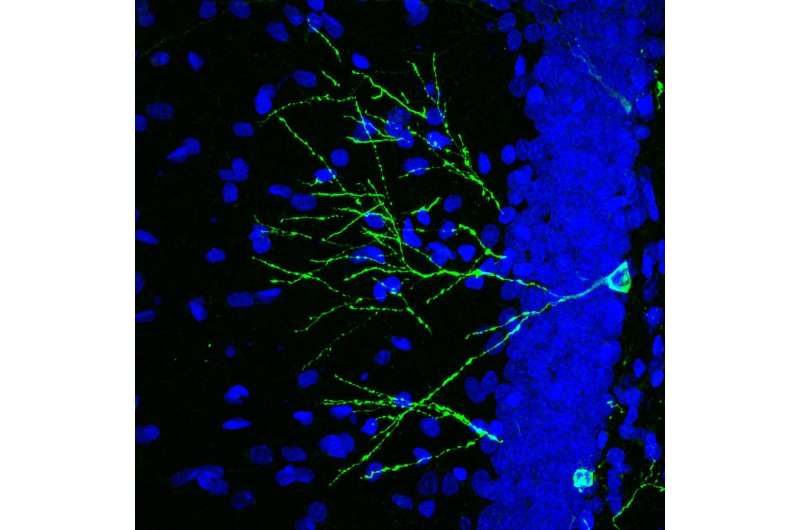This article has been reviewed according to Science X's editorial process and policies. Editors have highlighted the following attributes while ensuring the content's credibility:
fact-checked
peer-reviewed publication
trusted source
proofread
Hypocaloric diet found to attenuate brain changes related to age-associated memory loss

A study coordinated by the Institute of Neurosciences of the UAB (INc-UAB) analyzes in old rats the effects of a calorie-restricted diet on the hippocampus, a brain structure that is critical in learning and memory processes. The results corroborate that there is a cognitive improvement derived from diet, linked to a reduction in the levels of inflammation and neuronal loss in the hippocampus. The work is published in the journal Nutrients.
Advances in the scientific, technological, and health sectors has led to an increase in life expectancy in our society and consequently, to a greater incidence of neurodegenerative diseases associated with age. This improvement in life expectancy therefore also requires research into strategies that can delay brain aging.
In this regard, it has been described that some of the brain alterations observed during aging, which may include an increase in oxidative stress and neuroinflammation, alterations in gene expression, a reduction in neurogenesis, and a dysregulation of mechanisms involved in synaptic plasticity, are related to the cognitive dysfunction that manifests naturally as we age. These processes, which depend on both genetic and environmental factors, are particularly important in the hippocampus.
Calorie-restricted diets have been shown to extend life expectancy and improve cognitive status, both in humans and in animal models, but many of the cellular processes associated with these benefits are still unknown. In this study, coordinated by Professor Gemma Guillazo from the INc-UAB and the Department of Psychobiology and Methodology, and Professor Carlos Barcia from the INc-UAB and the Department of Biochemistry and Molecular Biology, researchers confirm the ability of rats to memorize and learn on calorie-restricted diets compared to rats fed a constant supply of food, and analyzed the effects on the hippocampus.
The results show that the group that followed a hypocaloric diet had better results in the spatial object recognition test, a memory test that allows you to evaluate, among others, the functioning of the hippocampus. In addition, the data obtained suggest that this improvement is linked to a reduction in both age-related neuronal loss and inflammatory activity in this structure.
"This article evidences the effects of the hypocaloric diet in the preservation of hippocampal functions and in the reduction of neuroinflammation associated with aging, and supports interventions at this level to improve the quality of life of elderly people," explains Dr. Guillazo
The study highlights the potential of changes in habits, such as dietary modifications, to promote healthy aging of the brain and prevent age-related cognitive deficits.
More information: Marta Portero-Tresserra et al, Effects of Caloric Restriction on Spatial Object Recognition Memory, Hippocampal Neuron Loss and Neuroinflammation in Aged Rats, Nutrients (2023). DOI: 10.3390/nu15071572


















